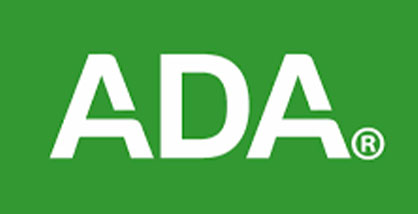Important Dental Information Every Parent Should Know
Even though your child will lose their “baby” teeth, they serve several important roles until your child reaches the age of twelve or thirteen. One of the most important functions of primary teeth is to maintain space for permanent teeth. Losing a primary tooth early could potentially cause impacted permanent teeth. Other important functions of primary teeth include proper speech development and ability to chew foods. Creating great dental habits early on will keep your child’s teeth healthy and make it easy for your child to keep those habits forever.
When should I start brushing my baby’s teeth?
Dental care should begin at birth. Gently wipe your baby’s gums with a soft, wet cloth after each feeding because the gum tissue and tongue can harbor bacteria. When teeth begin to appear, brush at least twice a day with water and soft toothbrush sized appropriately for your child’s age. Special fluoride free training toothpaste can be added to the routine from the age of 18-36 months. After 36 months, you can add a small pea sized dab of fluoride toothpaste to clean and protect the teeth. Be sure to monitor your child to prevent swallowing of fluoride toothpaste.
“Baby Bottle Tooth Decay”
Babies that go to bed with bottles of milk, formula, or juice are likely to eventually get tooth decay. Often this decay is rampant throughout the mouth due to sugar contact with the teeth for a long duration throughout the night. Recently there has been a rise in decay due to juices in sippy cups. If your child is sipping on juice all day long, they are at risk for rampant decay. Here are some tips to prevent this type of decay:
- Put your child to bed without a bottle
- Try not to let your child walk around using a bottle of milk or juice as a pacifier
- Don’t dip your child’s pacifier in juice or sugar
- Put water in your child’s cup between meals
When should my child have their first dental visit?
Your child should visit the dentist for the first time between the age of 1 and 3. The purpose of the first visit is to evaluate your child’s oral health and to educate parents on proper dental care for your child. At the first visit, you will get questions answered and start to build an important relationship with the dentist. The dentist will evaluate your child’s development, teething, bite, gums, oral habits, and check for cavities. Your dentist or hygienist may also give your child their first professional cleaning.
What about thumb sucking?
Many children suck their thumbs, fingers, or pacifiers. Over time, thumb or pacifier sucking can cause changes in the developing mouth of a child. Thumb sucking can cause an open bite, a high arched palate, or both due to the pressure created in the mouth. Thumb sucking can also cause the upper teeth to protrude and lower teeth to tip in toward the tongue where the thumb rests during the course of sucking. Your dentist will watch for problems as your child grows.
How will diet affect my child’s teeth?
Eating a healthy diet rich in fruits in vegetables will lead to healthy teeth. Sugary (cookies), starchy (crackers), and sticky (raisins) foods stay in the mouth longer and can easily cause cavities. When your child wants snacks, its important to stick to fruits and vegetables.
Is fluoride important?
Fluoride helps make teeth stronger and prevents cavities. Fluoride helps make teeth more resistant to acid, plaque, and bacteria. It also helps to remineralize teeth and reverse the early stages of decay. Your dentist will begin fluoride treatments for your child around the age of 3 and continue these treatments every six months until your child is 18. In addition to professional treatments, you child should use a fluoride toothpaste at home. In some cases, a fluoride rinse may also be recommended.
Does my child have a cavity?
Any time you are suspicious that your child may have a cavity, it is important to call the dentist. Cavities can present themselves as small dark spots on the tooth surface, or they may not be visible at all. If your child is complaining of tooth pain or mouth pain, make them an appointment today.
Be sure to keep up with your child’s routine dental care. It is recommended that children are seen every 6 months for a professional dental cleaning and exam. Call your dentist with any further questions about your child’s oral health.
Great Resources:
http://www.kidsmilesclinic.com
http://www.colgate.com/app/Kids-World/US/HomePage.cvsp









